Highlights
Proud
Great research comes from talented researchers. At RIMLS we cherish our talents and offer the best possible support to make them flourish. Whether they are master’s students, PhD candidates, postdoc’s, professors or other staff members, or whether they work at Radboudumc or at the Faculty of Science. Proudly presenting some of our research talents.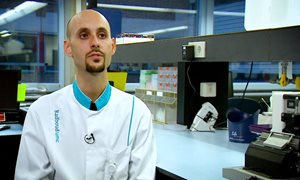
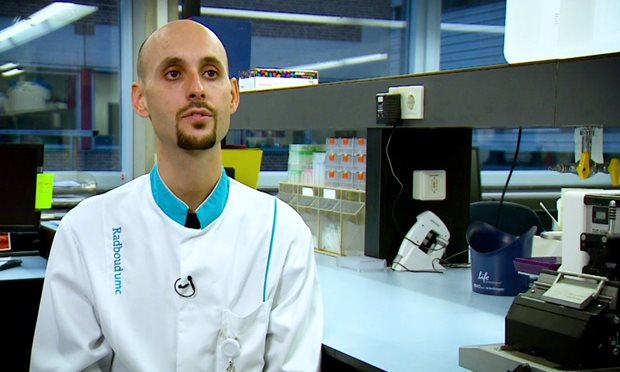
Jorge Dominguez Andres a throwback to his career
A young, international researcher who found in RIMLS a place to learn, grow and develop a scientific career.

Vlog by Marith van Schrojenstein-Lantman
Our PhD candidate Marith interviews Ellen van den Bogaard, who really can call herself a female academic role model and professor of Innovative Experimental and Translational Dermatology.

Tom Nijenhuis about a strong tradition in rare kidney disorders
In this video, he tells us about his personal highlight and the connection between the clinic and either fundamental or clinical research: ''a unique asset of a university medical center''..aspx?width=500&height=333&ext=.jpg&type=BlockColumn1Zoom1)
NWO Rubicons for Michelle Brouwer and Guido van Mierlo
Two science talents received a Rubicon grant from Dutch scientific organization NWO. This grant is intended for young scientists with a doctoral degree to conduct research at foreign research institutes. The Rubicon program is intended to give young, promising scientists the opportunity to gain international research experience. read more
Veni grants for three RIMLS researchers
NWO has awarded 89 promising young scientists Veni funding of up to 280 kEuro. Three of them are from Radboud Institute of Molecular Life Sciences (RIMLS). They can develop their own research ideas over a period of three years. read moreVeni grants for three RIMLS researchers
ACCELERATE: ZebrAfish CanCer modEl Leading thE way towaRds treAtmenT dEvelopment for phaeochromocytomas and paragangliomas.
Margo A. Dona, Vascular damage.
Total grant: 350 kEuro. Awarded Radboudumc: 350 kEuro.
Respiratory mucosal immunity: gateway to advance the prevention, diagnosis and treatment of childhood respiratory infections.
Lilly Verhagen, Infectious diseases and global health.
Total grant: 350 kEuro. Awarded Radboudumc: 350 kEuro.
Dynamic changes in proteins during embryonic development.
Suzan Stelloo, RIMLS-Faculty of Science.
Total grant: 350 kEuro. Awarded Radboudumc: 350 kEuro.
The Veni is awarded annually by NWO and ZonMW. This year they have awarded 89 promising young scientists Veni funding of up to 280 kEuro. Eight of them are from Radboudumc and Radboud University. They can develop their own research ideas over a period of three years.
These scientists will conduct research into slowing Parkinson's disease through exercise, the genetic complexity of psychiatric disorders, how to measure fear memories in the brain, the impact of viruses on greenhouse gas emissions from soils, and more.
Three RIMLS researchers and their projects who received the Veni grant 2021 are:
Margo A. Dona, Vascular damage
ACCELERATE: ZebrAfish CanCer modEl Leading thE way towaRds treAtmenT dEvelopment for phaeochromocytomas and paragangliomas.
Mutations in the SDHB-gene are the most important risk factor for malignant phaeochromocytomas and paragangliomas, endocrine tumours, for which no curative treatment is available. This project entails the development of a mutant zebrafish tumour model, in which treatment modalities will be tested leading to novel treatment possibilities.
Lilly Verhagen, Infectious diseases and global health
Respiratory mucosal immunity: gateway to advance the prevention, diagnosis and treatment of childhood respiratory infections
Blood immune markers are used to diagnose children with respiratory tract infections. However, every respiratory infection starts with a local immune response in the airways. We will study innate immune cells that are crucial for the respiratory mucosal immune response to enable future mucosal treatment strategies without antibiotic overuse.
Suzan Stelloo, RIMLS-Faculty of Science
Dynamic changes in proteins during embryonic development
During early embryogenesis, stem cells develop into various different cell types. The development of different cell types involves changes in both protein expression levels and protein-protein interactions. The researchers will investigate the dynamic changes in protein expression and interaction during the development of embryonic stem cells into more specialized cells.
Talent Programme
Veni, together with Vidi and Vici, is part of the NWO Talent Programme (previously: the Innovational Research Incentive). Veni is aimed at excellent researchers who have recently gained their doctorates. Within the Talent Programme researchers are free to submit their own subject for funding. In this way NWO encourages curiosity-driven and innovative research. NWO selects researchers based on the quality of the researcher, the innovative nature of the research, the expected scientific impact of the research proposal and opportunities for knowledge utilization.

Vici grant for Michiel Vermeulen Reading the epitranscriptome
Michiel Vermeulen, RIMLS/FNWI, has been awarded a Vici grant from the Netherlands Organisation for Scientific Research (NWO), one of the largest personal scientific awards in the Netherlands. read moreVici grant for Michiel Vermeulen Reading the epitranscriptome
Reading the epitranscriptome.
Michiel Vermeulen, RIMLS/FNWI, Cancer development and immune defense.
Total grant: 1,500 kEuro. Awarded Radboudumc: 1,500 kEuro.
Michiel Vermeulen will use his grant to further study the epitranscriptome. Recently it became apparent that RNA modifications play an important role in regulating gene expression in health and disease. In this project, the underlying molecular mechanisms will be studied in great detail during blood cell differentiation. Furthermore, aberrant RNA modification patterns will also be studied in leukemia.
Vici is targeted at outstanding senior researchers who have successfully demonstrated the ability to develop their own innovative lines of research, and to act as coaches for young researchers.
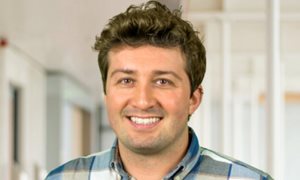
Young Investigator Award for Alex Garanto
Alex Garanto has been honored with the 2021 Mary Ann Liebert, Inc. publishers Young Investigator Award read moreYoung Investigator Award for Alex Garanto
Alex Garanto, theme Metabolic disorders has been honored with the 2021 Mary Ann Liebert, Inc. publishers Young Investigator Award of the Oligonucleotide Therapeutics Society (OTS) in recognition to his contribution to the development of antisense oligonucleotide to treat inherited retinal diseases. The award will be presented on 28 September during the 2021 Annual Meeting of the OTS.

Marie Curie Global Fellowship for Elena Macias Sanchez
Elena Macías Sánchez has been awarded with a MSCA-IF to study the process of bone mineralisation in the department of Biochemistry. read moreMarie Curie Global Fellowship for Elena Macias Sanchez
Deciphering collagen mineralization process by dynamic imaging in liquid (DYNAMIN).
Elena Macias Sanchez, Reconstructive and Regenerative medicine.
Total grant: 186 kEuro. Awarded Radboudumc: 186 kEuro.
Elena Macías-Sánchez, Reconstructive and Regenerative medicine, has been awarded a prestigious Marie Sklodowska-Curie Individual Fellowship, to develop a two-year project investigating the process of bone mineralization. Elena will develop a new imaging platform combining Liquid Phase Electron Microscopy (LPEM) with immunolabelling to study the role of regulatory molecules (proteoglycans) in mineral formation at nanoscale resolution. “By recreating the physiological mineralization conditions inside a liquid cell, we aim to obtain real-time data on the mineralization dynamics of bone.”
Despite its clinical relevance, the mechanism of bone formation is still poorly understood, mainly due to the complexity of the underlying processes. Until now most studies relied on simplified in vitro models that cannot represent this complexity. Furthermore, methods traditionally applied only provide snapshots of these processes, unable to extract dynamic information. “To really understand the mechanisms regulating bone mineralization, we need to simultaneously visualize the different components in their context, to be able to monitor these complex interactions.”
The project will be carried out at the Department of Biochemistry, under the supervision of Nico Sommerdijk, theme Nanomedicine/Reconstructive and Regenerative medicine, and in close collaboration with Niels de Jonge from the Leibnitz Institute for New Materials (INM, Saarbrucken). Sommerdijk and De Jonge pioneer the study of biomolecular interactions in the hydrated state by means of electron microscopy. The project is supported by the Electron Microscopy Center recently established within the RTC Microscopy.

ZonMw Off Road grants for Jorge Dominguez Andres, Annie Yang and Tom Schirris
The ZonMw Off Road program is once again giving young scientists the opportunity to conduct innovative research in medical and/or health care. This research is off the beaten track and aims to bring about new insights and unexpected breakthroughs for healthcare and healthcare innovation. read moreZonMw Off Road grants for Jorge Dominguez Andres, Annie Yang and Tom Schirris

Immune recognition of putative alien microbial structures.
Jorge Dominguez Andres, Infectious diseases and global health.
Total grant: 100 kEuro. Awarded Radboudumc: 100 kEuro.
With future missions to space, a whole range of microorganisms will be exposed to the extraterrestrial environment. It is crucial to investigate how the immune system might deal with these microbes. This project will mimic conditions found in different bodies of our solar system and study the adaptations of microorganisms to these new environments and the potential changes in their pathogenicity for humans.

Exploiting death to create a safe and efficacious malaria vaccine.
Annie Yang, Infectious diseases and global health.
Total grant: 100 kEuro. Awarded Radboudumc: 100 kEuro.
Malaria is a major tropical disease. Whole-organism vaccine strategies are based on arresting parasite growth by deleting “essential” pathway(s), but are either not effective or safe. Here, researchers propose to activate the intrinsic death pathway of the parasite to provide a novel approach towards combating malaria.

MitoCarrier-Glo: probing drug effects on mitochondrial metabolite transport.
Tom Schirris, Metabolic Diseases.
Total grant: 100 kEuro. Awarded Radboudumc: 100 kEuro.
Mitochondria are the cellular power plants, which need metabolites imported by specialized transport proteins (gates) to function properly. This study will develop a novel strategy to measure drug and metabolite transport by these gates to elucidate their role in the cell and the effects of drugs thereon.


Senior Kolff Fellowship for Jeroen de Baaij
Jeroen de Baaij received a prestigious Senior Kolff grant from the Dutch Kidney Foundation. His project aims to establish dietary approaches against vascular calcification in chronic kidney disease. read moreSenior Kolff Fellowship for Jeroen de Baaij
Crystal Clear: Dietary Prevention of Vascular Calcification in CKD.
Jeroen de Baaij, Renal disorders
Total grant: 375 kEuro. Awarded Radboudumc: 375 kEuro.
Jeroen de Baaij from the department of Physiology, Renal disorders obtained a Senior Kolff Fellowship from the Dutch Kidney Foundation (Nierstichting).
Jeroen's research proposal ‘Crystal Clear: Dietary prevention of vascular calcification in chronic kidney disease’ was awarded a Senior Kolff Fellowship of 375K Euro. In this project, Jeroen de Baaij aims to develop a dietary approach to prevent vascular calcification in chronic kidney disease.
Cardiovascular disease is the most common cause of death in patients with chronic kidney disease (CKD). Already in early stages of kidney failure, the risk of cardiovascular disease is 2-fold higher than in individuals with a normal kidney function. Vascular calcification has been demonstrated to be a major contributor to cardiovascular morbidity and mortality in CKD.
In his Kolff senior project, Jeroen will examine the effects of individual nutrients on calcification and vascular function in cell models and in a large patient cohort. Subsequently, a balanced anti-calcification diet will be designed and tested in animal models of CKD. The research proposal is a collaborative effort with Gerjan Navis, Martin de Borst and Rozemarijn Vliegenthart from University Medical Center Groningen.
The Dutch Kidney Foundation Kolff program aims to stimulate the quality of the renal scientific field in the Netherlands through providing personal grants that support all phases of a research career. The program establishes stronger links between research and patient care.
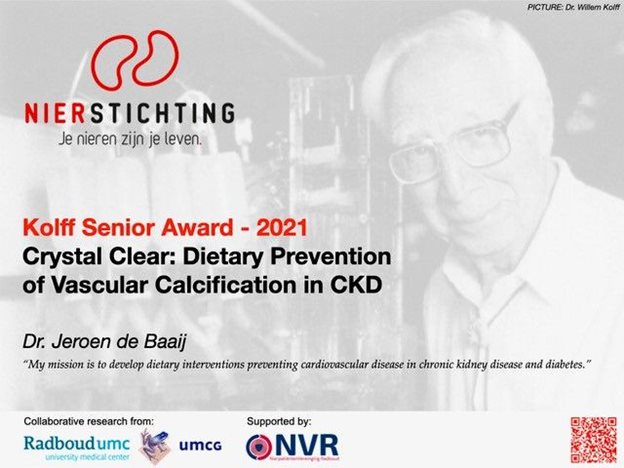

Andrea Rodgers Furones awarded the best Master thesis prize
The title of her Master thesis was: 'Galectin-9: the grand master during dentritic cell-mediated T-cell immunity. read moreAndrea Rodgers Furones awarded the best Master thesis prize
The Master's thesis is a proof of the ability of a Master's student to perform scientific research and to present his/her findings in a clear and concise manner. Yearly RIMLS gives an award to the most outstanding Master's dissertation.
The winner of the RIMLS Master thesis: Andrea Rodgers Furones: 'Galectin-9: the grand master during dentritic cell -mediated T-cell immunity.'

Joep Joosten received best PhD thesis award
The winning thesis was entitled: ‘’Mechanistic insights into the piRNA machinery of Aedes mosquitoes’’. read moreJoep Joosten received best PhD thesis award
The doctoral thesis is a proof of the ability of the PhD candidate to perform independent scientific research. Yearly RIMLS gives an award to the most outstanding thesis.
The winner of the RIMLS PhD thesis: Joep Joosten Mechanistic insights into the piRNA machinery of Aedes mosquitoes.

Cum laude promotions for nine PhD candidates
This year RIMLS had a record number of Cum laude PhDs. read moreCum laude promotions for nine PhD candidates
Record in Cum laude PhD's in 2021:
Theme Infectious diseases and global health
- Isaie Reuling, The Use of Controlled Human Malaria Infection As Fit-For-Purpose Model In The Fight Against Malaria.
- Joep Joosten, Mechanistic insights into the piRNA machinery in Aedes mosquitoes.
- Jona Walk, Diversity of protective immune responses in human malaria.
- Laura de Vries, Steepen the Curve: The Potential of Pantothenamides in Malaria Control.
- Rob ter Horst, Impact of host and environmental host factors on immune response heterogeneity.
Theme Tumours of the digestive tract
- Ilja Diets, Genetic childhood cancer predisposition. Towards better detection and understanding.
- Judith Grolleman, Identifying and characterizing hereditary polyposis and colorectal cancer: Mutational signatures of defective base excision repair.
Theme Cancer development and immune defence
- Inge Wortel, Secrets of T-cell crowds: How complexity emerges in T-cell repertoires and T-cell migration.
Theme Inflammatory diseases
- Marilen Benner, Changing perspectives on uterine immunity.
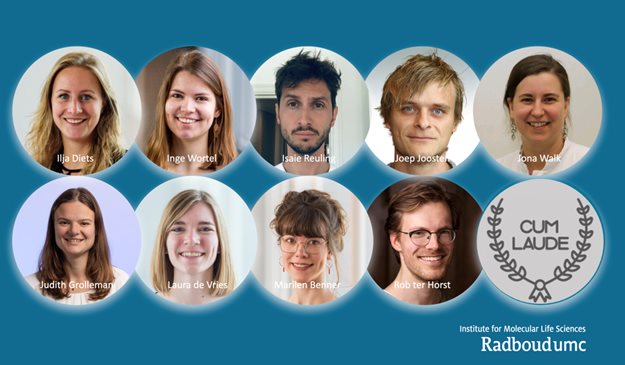
Our Cum laude PhDs in 2021

Newly appointed full professors in 2021
This year nine RIMLS researchers were appointed to full professor. read moreNewly appointed full professors in 2021
Newly appointed professors in 2021 are:
Ellen van de Boogaard, Professor of Innovative Experimental and Translational Dermatology

Hedi Claassen, Professor of Differences in Sex Development & Transgendercare
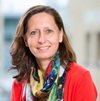
Christian Gillisen, Professor of Genome Bioinformatics
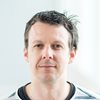
Sandra Heskamp, Professor of Nuclear imaging and therapy in immuno-oncology
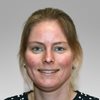
Nicole van de Kar, Professor of Complement-Mediated Kidney Diseases
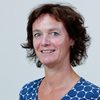
Tom Nijenhuis, Professor of Rare Kidney Diseases

Michiel Schreuder, Professor of Pediatric Nephrology

Nico Sommerdijk, Professor of Bone Biochemistry

Frank van de Veerdonk, Professor of Immunotherapy for Infectious Diseases

